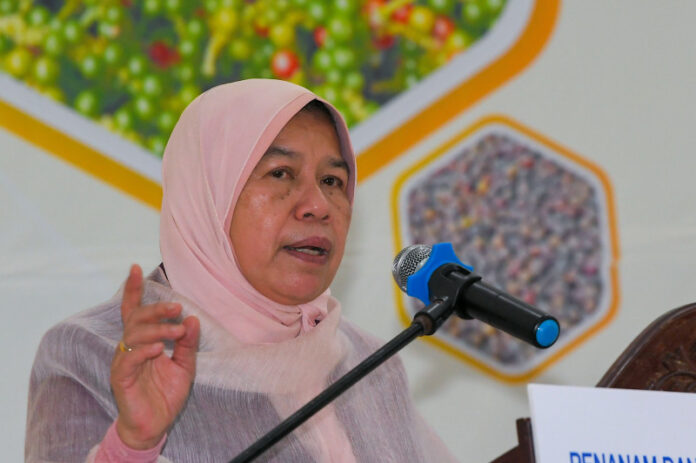KUALA LUMPUR, Sept 20 — Aggressive measures need to be taken to coordinate the management of the bamboo industry for the commercialisation, promotion and development of the sector, as the industry is capable of boosting the people’s incomes as well as contributing to the nation’s economy.
Plantation and Commodity Industries (MPIC) Minister, Datuk Zuraida Kamaruddin said in 2021, Malaysia’s exports of bamboo products had increased by 1.6 per cent to RM8.41 million from RM8.28 million in 2020, while imports stood at RM89.23 million.
She noted that the nation’s exports of bamboo products are much lower compared to other countries, and that Malaysia is still very much dependent on its imports of bamboo products from China, Indonesia and Vietnam, despite the local bamboo industry having great development potential.
“The industry’s progress is quite slow compared to other agro-commodities.
“But it is still not too late to take aggressive steps in terms of managing bamboo cultivation and commercialising the products as the global market has already started using bamboo products as an alternative to existing products,” she said after launching the World Bamboo Day Malaysia 2022 at the Forest Research Institute Malaysia here today.
She emphasised that a concerted effort to create a structured ecosystem, estate level management or corporate management to promote the bamboo industry should be taken to bring the industry to the next level.
“The local bamboo industry is very small and there are only 567 local bamboo growers who are directly involved in the bamboo-based industry in Malaysia, encompassing furniture, construction, textile, plantation, food, charcoal and handicraft industries,” the minister said.
Zuraida said the MPIC — through the Malaysian Timber Industry Board and the Malaysian TImber Council — will continue to strengthen the local bamboo industry’s development.
“By implementing various programmes and initiatives such as research and development programmes, as well as providing continuous support, the industry is capable of optimising this raw material as an added-value alternative in the timber industry,” she said.
Malaysia has around 70 bamboo species, of which 45 are local species which can be found in the forests.
In terms of cultivation, 31 per cent of the bamboo plantations are located in Peninsular Malaysia, 45 per cent in Sarawak and 24 per cent in Sabah.
















